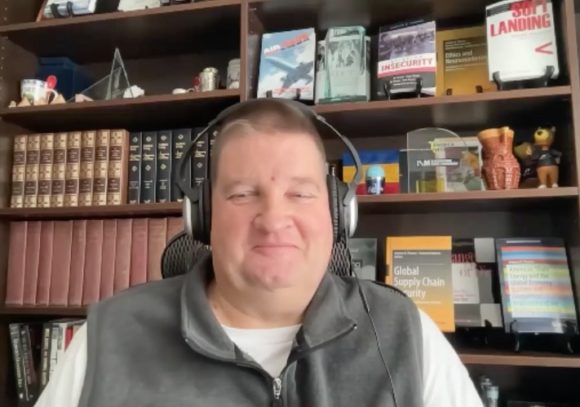When Trump was elected President for a second term, I expected there would be a lot of talk about tariffs, but I didn’t anticipate all the attention on the Panama Canal and Greenland.
So, it seemed like the perfect time for Lloyd and I to talk to one of our favorite geopolitics experts, Dr. Andrew R. Thomas, best selling author and Professor of Business at the University of Akron. It also just so happens that Thomas is a part-time resident of Panama and he recently wrote a book about the Panama Canal.
It was a fun interview. We explored how the latest politics are reshaping international trade and why the current administration seems so interested in Greenland and the Panama Canal.
Quick note: we recorded this conversation on February 3rd, when there was serious talk about 25% tariffs on Canadian and Mexican imports potentially taking effect the very next day.
Listen to our other interviews with Andrew R. Thomas on the subject of reshoring and China, and the fracking revolution (Part 1 and Part 2).
*************
Listen on your favorite podcast app using pod.link.
View the podcast at the bottom of this post or on our YouTube Channel
Facebook: https://www.facebook.com/swarfcast
Instagram: https://www.instagram.com/swarfcast/
LinkedIn: https://www.linkedin.com/company/todays-machining-world
Twitter: https://twitter.com/tmwswarfblog
*************
Link to Graff-Pinkert’s Acquisitions and Sales promotion!
*************
Interview Highlights
The Panama Canal’s Surprising Success Story
Thomas shared a compelling narrative about the Panama Canal’s transformation. World War II marked a turning point – modern warships had grown too large for the locks, while America’s new interstate highway system and thriving west coast economy diminished its commercial importance. In 2000, critics compared the U.S. handover of control to “giving a Ferrari’s keys to a 16-year-old.” The Panamanians proved them wrong. They achieved ISO 9001 certification within a year, modernized booking systems, and transformed the money-losing operation into a profitable enterprise that generates billions in annual revenue.
This success story has taken a geopolitical turn. China has established growing influence in Panama by managing ports on both sides of the canal, launching infrastructure projects, and strengthening diplomatic ties. This expansion has drawn intense scrutiny from U.S. policymakers, especially President Trump.
The Energy Revolution Reshaping Global Politics
Thomas outlined how the American shale revolution has transformed international relations. America’s private property rights system differs from other nations where governments control mineral rights. This distinction enabled an energy renaissance that has transformed global dynamics and given the U.S. unprecedented leverage in foreign policy decisions.
The Panama Canal serves as a crucial link in this new energy landscape by facilitating American LNG exports to Asian markets. This demonstrates how infrastructure, energy policy, and international trade interconnect in today’s complex global environment.
Tariffs as Tools of Power
The recent announcements of 25% tariffs on Mexico and Canada and 10% on China mark a dramatic shift in American foreign policy. Thomas argues these moves extend beyond trade – they leverage economic power to combat fentanyl trafficking and illegal immigration. This approach signals a shift from maintaining global order to prioritizing domestic interests, creating unprecedented uncertainty in international business.
A New World Order Emerges
Thomas highlighted a pivotal moment when the Secretary of State acknowledged a “multipolar world” – a revolutionary admission from American leadership. This marks a fundamental shift from post-World War II American hegemony to a more complex international system.
The Urgent Need for Resolution in Ukraine
Thomas emphasized that the Ukraine conflict tops the list of global concerns. Russia sees the situation as an existential threat, given its history of invasions through Ukrainian territory. The rising nuclear risks and military escalations demand a diplomatic solution for global stability.
Looking Ahead
The U.S. continues to redefine its global role by prioritizing domestic interests while wielding economic power in new ways. These changes from Panama to Ukraine reshape international relations and will impact businesses and nations for years to come.
Key takeaway: We watch a historic transformation unfold in the global order, where economic leverage, energy independence, and infrastructure control drive international politics. These dynamics affect everyone involved in international business or policy-making in today’s complex world.
Question: How has unpredictable trade policy affected your manufacturing business in the past year?
Podcast: Play in new window | Download



